Job interviews are stressful enough as they are. Not only is your entire professional life being judged, but you also have to make sure to leave a positive impression, all the while you go through the many (many, many!) application stages. It’s exhausting.
And even though rejection is hardly ever a nice thing, there are better and worse ways to go about it. The least you can do is tell applicants that they didn’t pass, instead of ghosting them after multiple rounds of interviews. Redditor u/thegr8_alexander recently went viral on the Recruiter Hell subreddit after sharing how they pushed back at a company they were applying to after getting “radio silence.†All it took was disabling access to their take-home assignment.
You’ll find the full story, including how the internet reacted to it, below. Bored Panda has reached out to the author via Reddit for further comment about recruiter malpractices, and we’ll update the article once we hear back from them.
It’s an awful feeling to get positive feedback after multiple rounds of job interviews, only to end up getting ghosted
Image credits: Drazen Zigic / Freepik (not the actual photo)
One job applicant, who went through 8 rounds of interviews, shared how they got back at a company that ghosted them
Image credits: nensuria / Freepik (not the actual photo)
Image credits: thegr8_alexander
The way that job application processes are structured in this day and age can be frustrating for candidates who value their time
One of the most annoying and stressful parts of applying for a new job is the vast number of steps involved. It can really grate on your patience.
Especially if you don’t end up getting the feedback that you’d ideally want about your performance. If you end up ignored, it can feel like all of this has been a massive waste of time. And even saints have their limits.
Multiple rounds of interviews with different members of the company (from HR and team leads to upper managers and other important figures), assignments and personality tests that are meant to gauge the level of your skills, knowledge base, and compatibility with the company’s values—none of these things are bizarre in this day and age. Whether they should continue being the norm is another question entirely.
Unless you’re hiring someone for a C-suite position or a government job—high-stress positions with tons of responsibility and access to extremely sensitive data—you shouldn’t have seemingly endless rounds of interviews.
At some point, you have to make a decision. And if you want to be respectful to all the other awesome candidates who (barely) didn’t make the cut, get back in touch with them, give them some feedback, and propose staying in touch in the future.
You can never be 100% sure of your decision, no matter how many rounds you have and how talented you are. Until the person starts working at your company and finishes their probationary period, you can’t fully gauge their talents, soft skills, and potential.
Basic transparency, feedback, and proper communication should be commonplace
That being said, various ways of filtering out unsuitable candidates are a core part of recruitment. The basic idea is that you want the best possible person for the position.
You’re not only looking at their skillset but also how they come off in terms of their communication style. Interpersonal skills aren’t to be ignored, especially if the job requires interacting with clients or lots of teamwork.
So, you look for ways to see how much the job candidates match your expectations. There are no ‘perfect’ applicants; let’s not be naive perfectionists. But there are those who are great fits for the role and are ambitious and willing to grow.
Face-to-face job interviews can tell you a lot about a person’s character, confidence, and composure. Well, once you get past their pre-prepared answers to your questions, that is. Meanwhile, doing some sort of assignment or two isn’t unethical because you need a quick way to see whether the skills they claim to have are real or just empty boasting on their CV.
Usually, if you get an interview, it means that the company is interested in you and sees you as a strong candidate
During a previous interview with Bored Panda, one recruiting manager stressed the importance of strategic communication, diplomacy, and tailoring your message to the target audience during job interviews. Or, to put it in other words—it’s okay to fake your interest in the company and the job to get the position.
“Some people feel that they should not have to ‘fake’ interest in a job. But the reality is that employers want a workforce that cares about their work and over and over again, I see jobseekers who are able to communicate that passion land roles over those who don’t,†the recruiter told us earlier.
“If you landed an interview, you’re a strong candidate and they are excited to talk to you. You can anticipate a lot of the questions in advance (and use ChatGPT to brainstorm some) and practice your responses. It’s helpful to prepare a few examples that you can speak to,†she told us.
From her perspective, you could talk about a few projects you worked on that turned out well and one that didn’t, to show your range as a professional. “You can then pull on these examples when asked about how you led a team to achieve an outcome, a time you failed, how you organize projects, how you use data to achieve results, etc.â€
What have your experiences with job interviews been like, dear Pandas? Have you ever been ghosted by recruiters? What’s the biggest number of interviews and assignments you’ve had to do for a single position? Have you ever lost patience due to bad recruitment practices? Feel free to share your experiences and frustrations in the comments.
The author of the viral post interacted with some of their readers in the comments, sharing a bit more context
Here’s how some readers saw the entire situation with the iffy company
Unfortunately, many people have run into similar problems with recruiters. Here are their job application stories
Poll Question
Thanks! Check out the results:
I've never done more than a single interview and even if I was applying for a very senior position, I'd draw the line at 2. Eight rounds in total? That's just wasting everyone's time!
This is exactly what I was going to write. I've never done anything but a single interview either, but in upper positions I would understand two. But any more than that is just ridiculous.
Load More Replies...Six rounds of interviews? Shows the real character of the company. I give you two rounds, then I walk.
6 rounds for a mid-level jobs is a big red flag. For executive and C-suites, sure. Mid-level, nope.
I've never done more than a single interview and even if I was applying for a very senior position, I'd draw the line at 2. Eight rounds in total? That's just wasting everyone's time!
This is exactly what I was going to write. I've never done anything but a single interview either, but in upper positions I would understand two. But any more than that is just ridiculous.
Load More Replies...Six rounds of interviews? Shows the real character of the company. I give you two rounds, then I walk.
6 rounds for a mid-level jobs is a big red flag. For executive and C-suites, sure. Mid-level, nope.

 Dark Mode
Dark Mode 

 No fees, cancel anytime
No fees, cancel anytime 








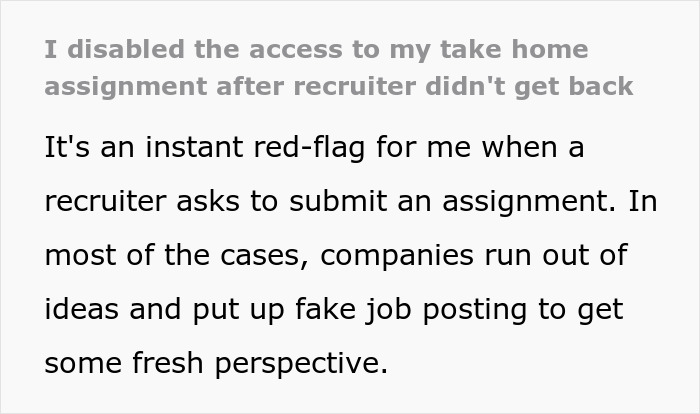
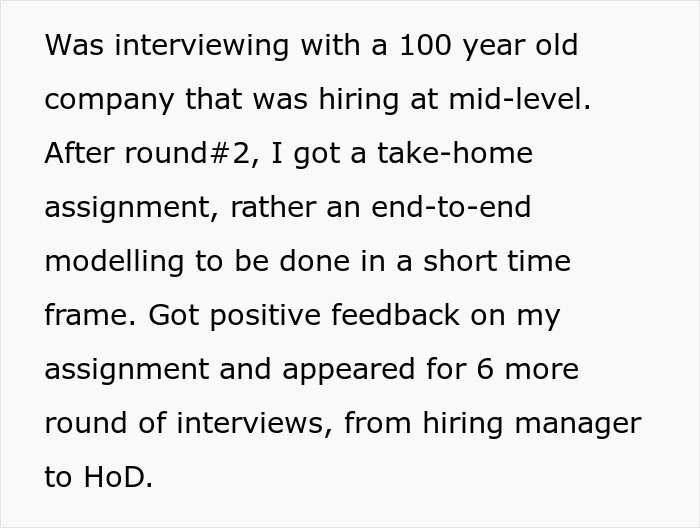
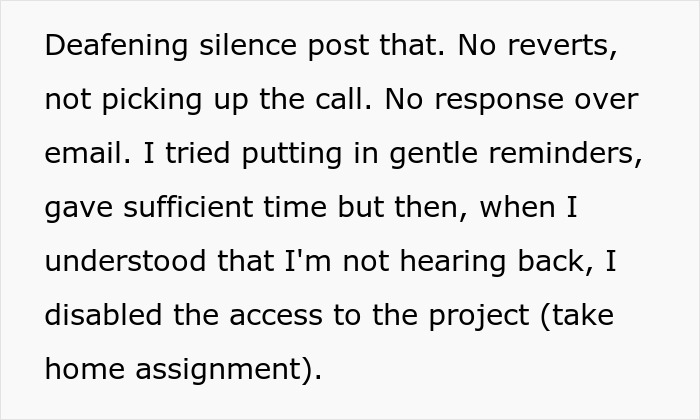
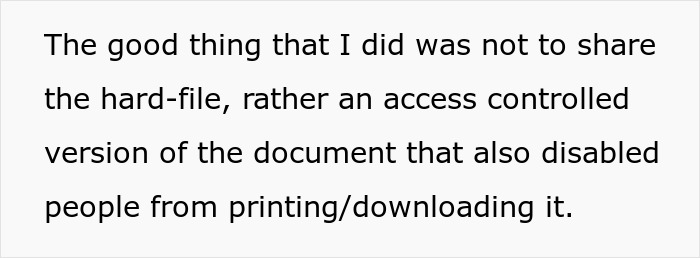
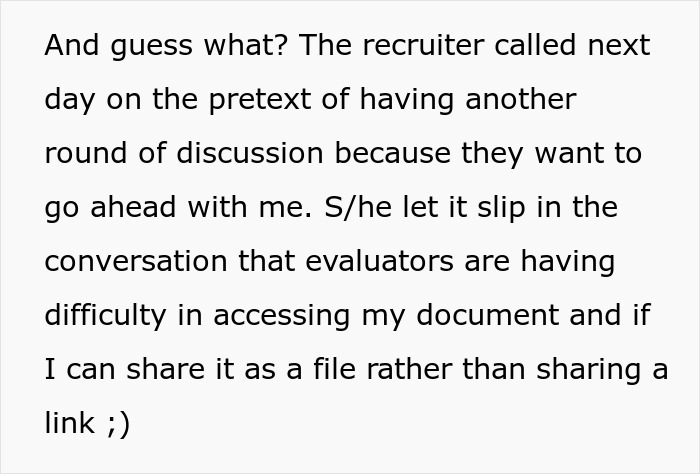
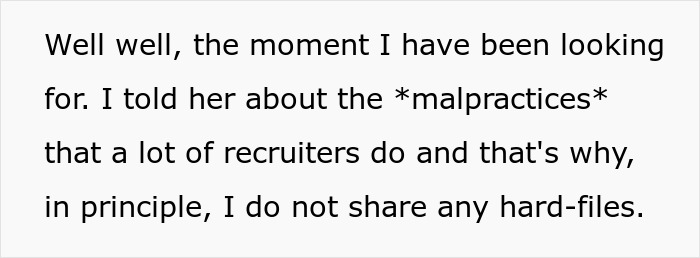
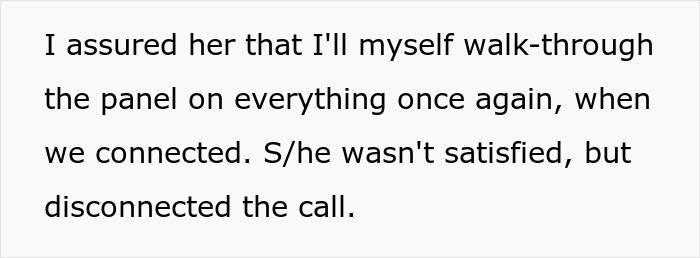
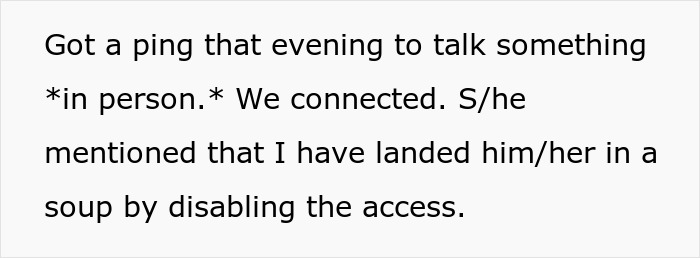
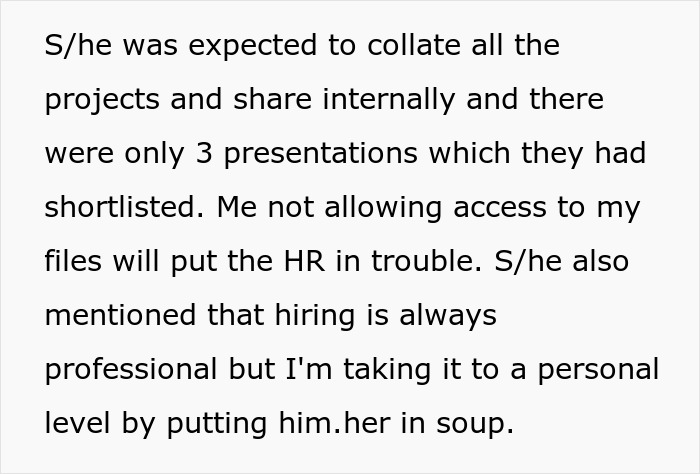

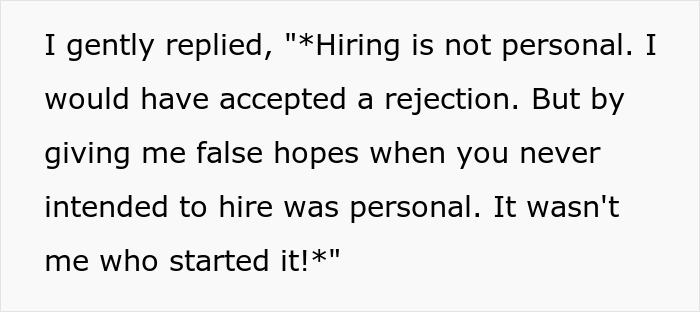

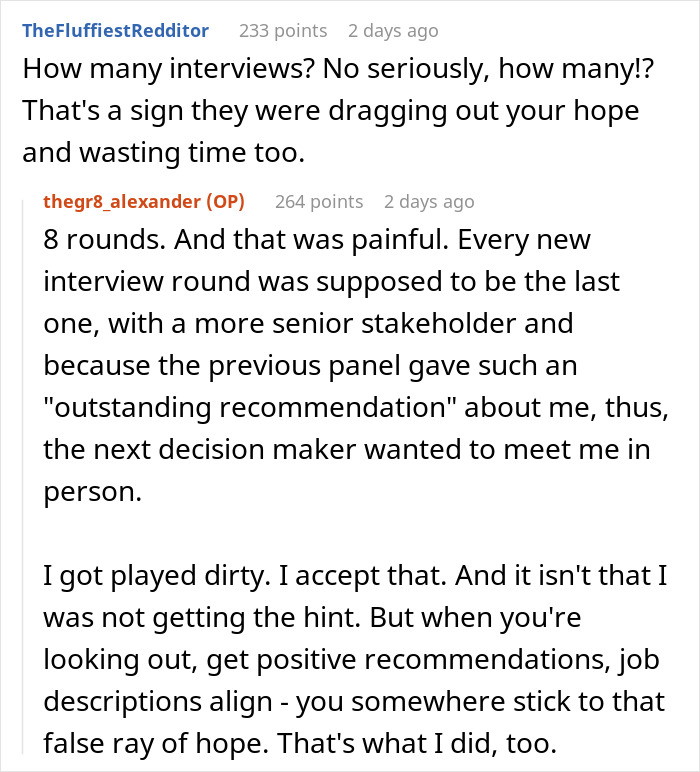
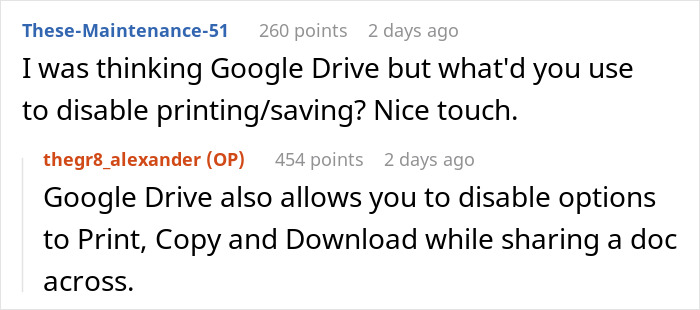
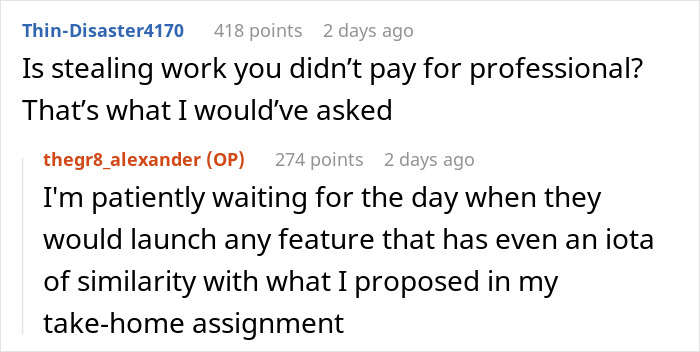
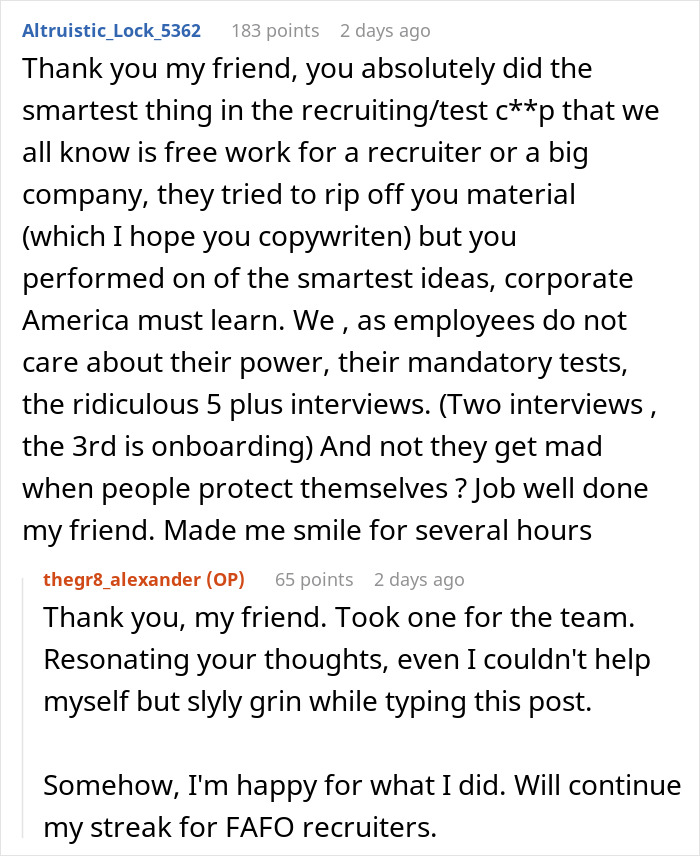
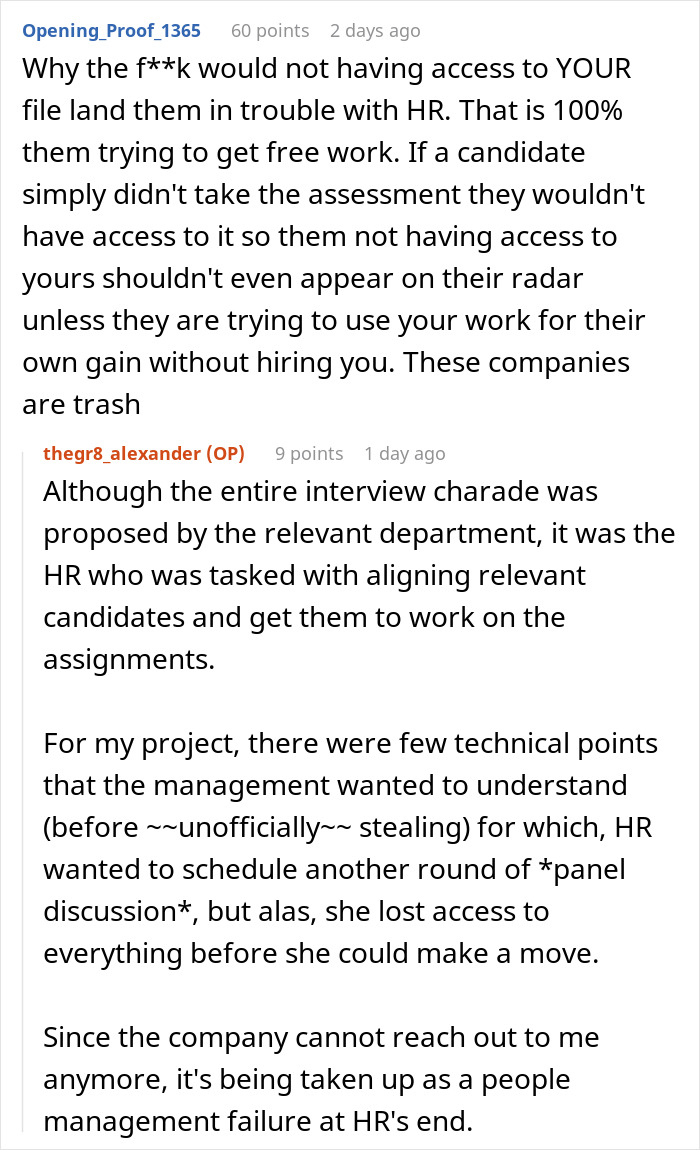
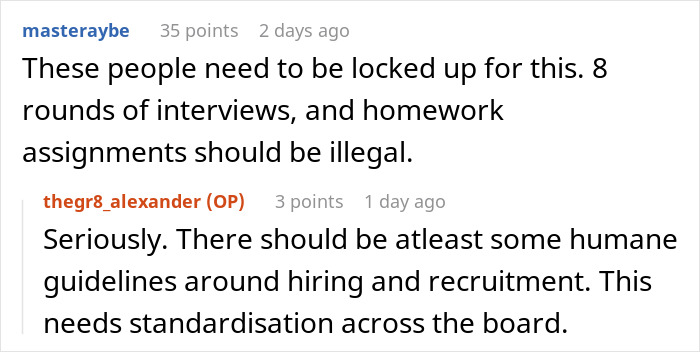


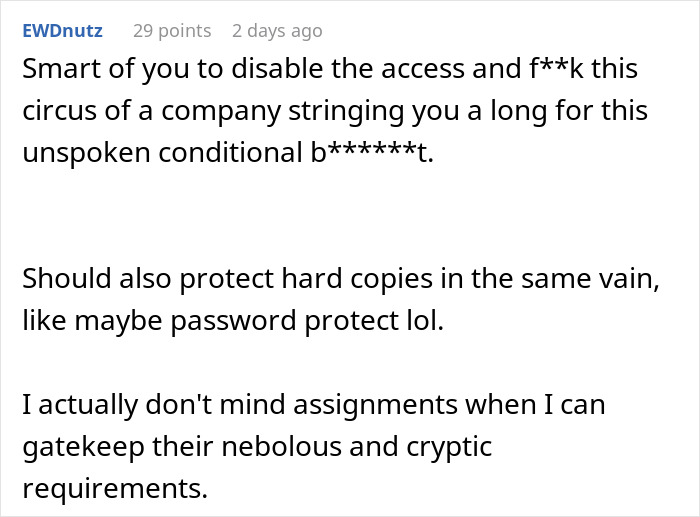


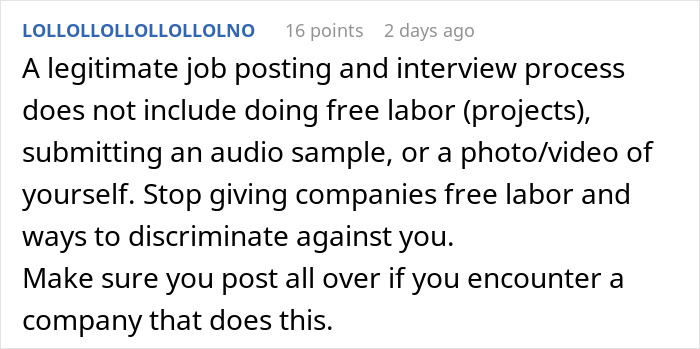
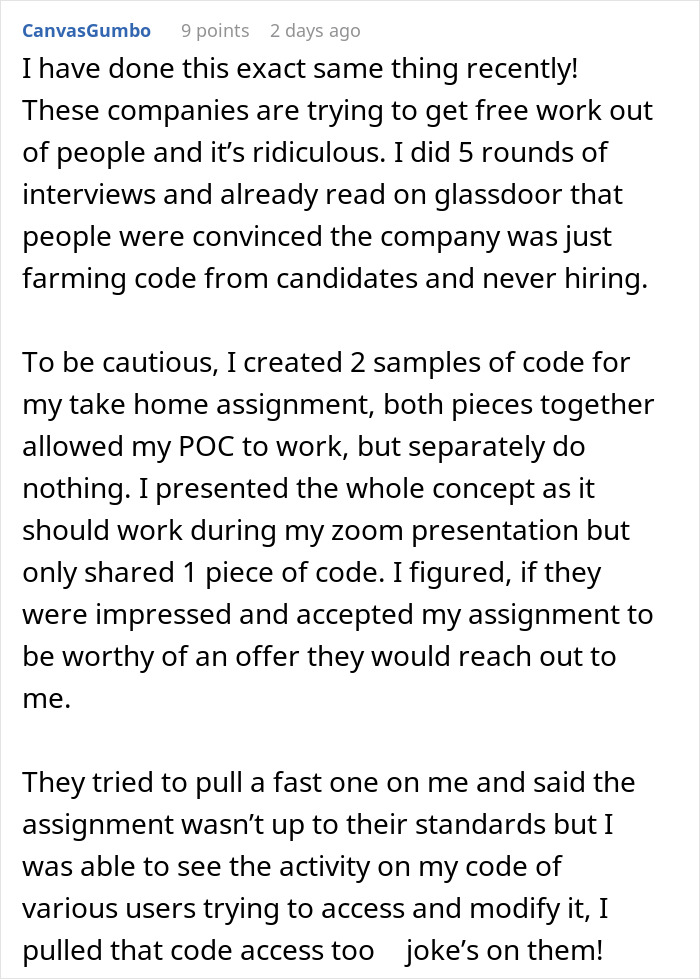
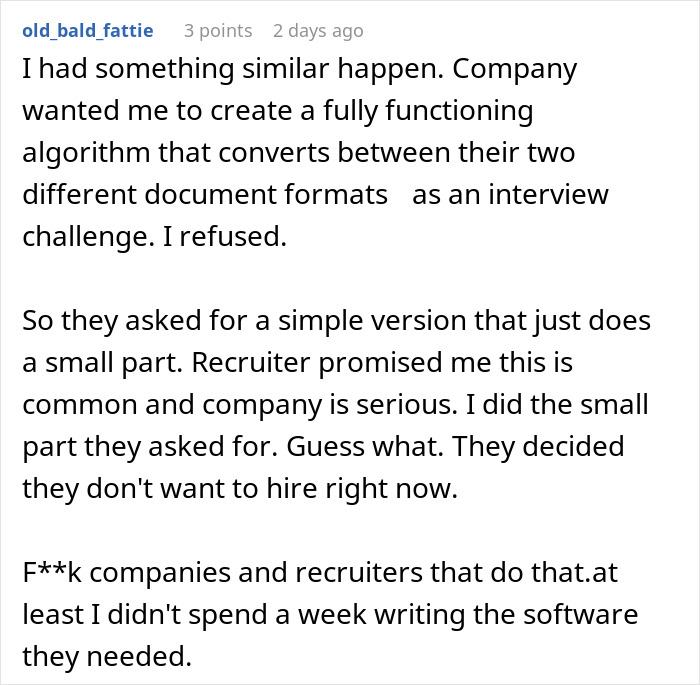
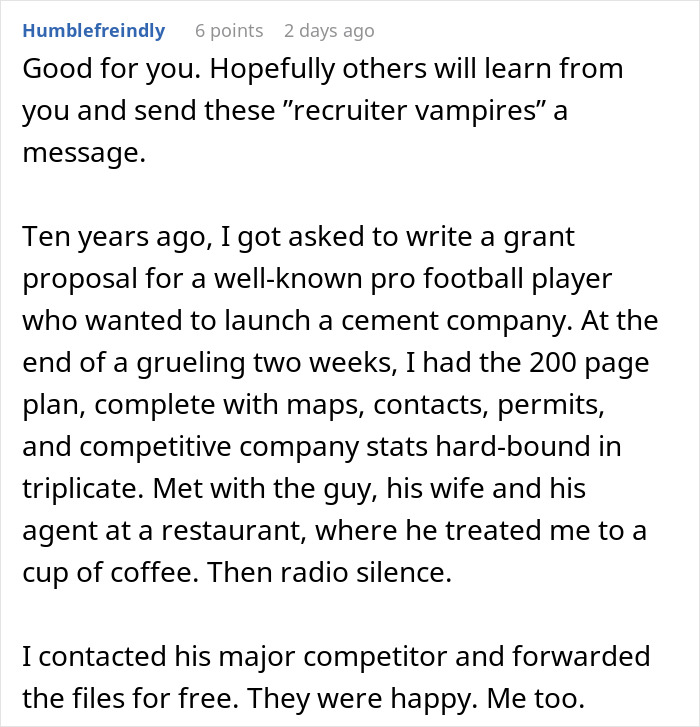












































40
30